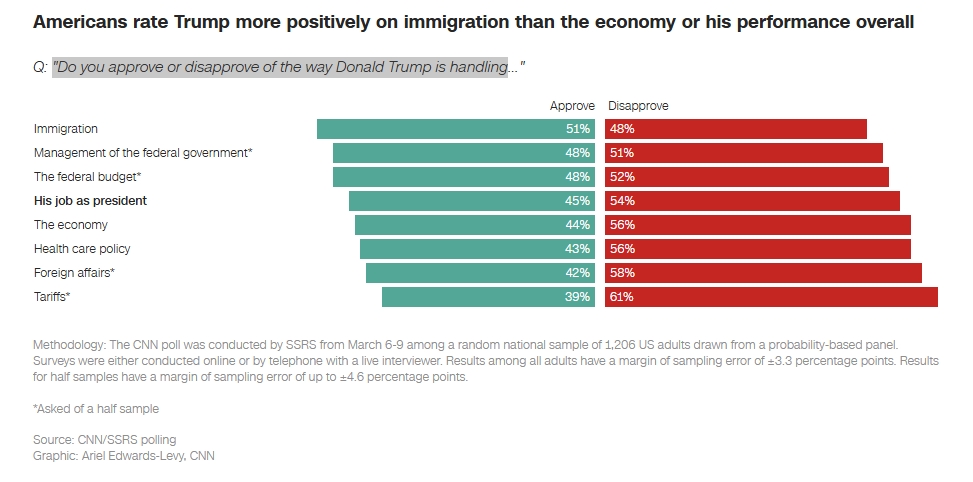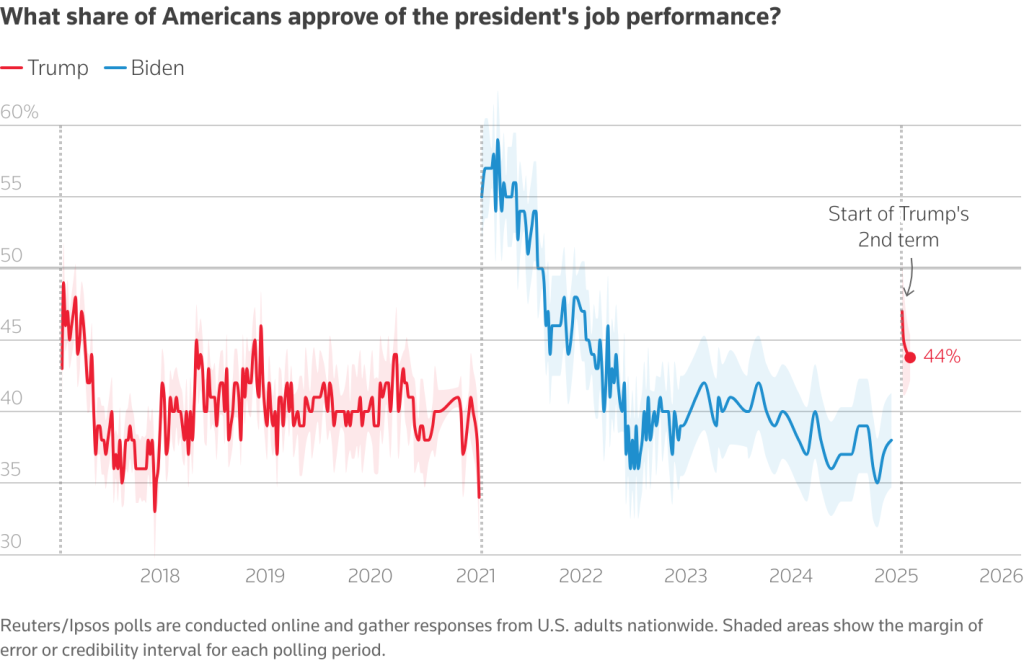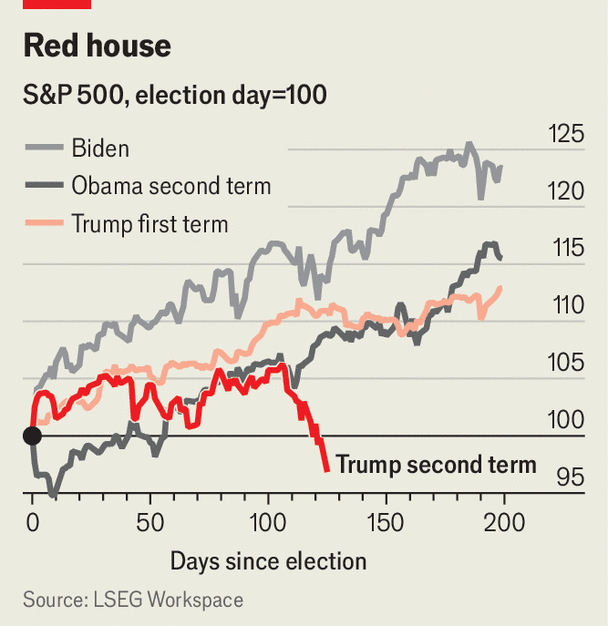In politics, as in business, reputation is everything. One overpromised vision, one unmet expectation, and suddenly, the voter—or in corporate terms, the consumer—feels deceived.
That is precisely what is happening with many former Trump supporters in the United States. They placed their trust—and their votes—in a brand that sold disruption, only to find that the disruption has come for them, too.

Trump’s Popularity and Market Fluctuations
Throughout Trump’s administration, his approval ratings often mirrored movements in major stock indices.
- When his popularity surged, markets like the S&P 500 saw notable gains.
- When his approval dipped, market downturns followed—underscoring the impact of political sentiment on financial stability.
For companies, this is not just a historical curiosity—it is a masterclass in brand volatility.
📊 Visualising the Correlation:
1️⃣ S&P 500 Performance Amidst Trump’s Policies – A breakdown of how Trump’s economic strategies affected the market. (Barron’s)
2️⃣ Investor Sentiment During Trump’s Tenure – How business confidence fluctuated under his administration. (Reuters)
3️⃣ Economic Indicators and Trump’s Approval Ratings – Data visualising the direct impact of political trust on economic performance. (The Times)
4️⃣ Market Reactions to Trump’s Economic Policies – Analysis of key turning points and their financial consequences. (News.com.au)

The Trump unBrand: A Masterclass in Reputation Collapse
The issue isn’t just Trump—it’s the Trump brand itself. Because yes, politics operates like marketing. Trump packaged himself as a product, selling an anti-establishment, results-driven vision.
He promised to “drain the swamp”, reduce government waste, and put “America First”. But now, many of those same voters are realising that economic instability and mass layoffs have arrived at their own doorstep.

Sound familiar? Brands do this all the time. They launch spectacular advertising campaigns, promise a game-changing product, and then fail to deliver. And when that happens, reputation crumbles fast.
Take Jennifer Piggott, a three-time Trump voter who lost her government job due to the very budget cuts Trump championed. Or Jensy Machado, a firm supporter of tough-on-crime policies—until he himself was mistakenly arrested because of AI-driven racial profiling in law enforcement.
The lesson for businesses? Before jumping on a marketing bandwagon or selling an idea too aggressively, understand the real-world consequences.
When a Leader’s Reputation Becomes a Liability for a Country

A nation’s brand, like a company’s, is built on trust. When confidence in leadership erodes, the consequences are immediate:
⚠️ Crisis of confidence → When a leader fails to deliver, faith in institutions collapses.
⚠️ Social unrest → Former defenders turn into critics, deepening national divisions.
⚠️ Economic damage → Political instability spooks investors and slows growth.
For businesses, this dynamic is not just political—it is a brand management issue. A leader’s fall from grace drags everything attached to their brand down with them.
Look at Elon Musk’s Twitter (now X)—his personal reputation swings have directly impacted ad revenues and corporate partnerships.
The Role of Disinformation: When Propaganda Beats Reality
Why didn’t voters see this coming? Because disinformation is a more powerful tool than facts.
Social media and AI amplify false narratives, creating closed information loops where people only hear what they want to believe.
💡 The Business Parallel:
- The Algorithm Rewards Sensationalism, Not Accuracy → Platforms prioritise engagement over truth.
- Emotional Branding Wins Over Rational Arguments → Buying decisions (and voting choices) are driven by feelings, not logic.
- Polarisation Is Profitable → The more divisive the content, the more valuable it is for platforms like Facebook, TikTok, and X.
For brands, this is a double-edged sword. Tapping into consumer emotions is critical—but losing control of the narrative is a reputational time bomb.
Implications for Corporate Reputation Management
The interplay between politics, markets, and brand perception provides crucial lessons for businesses:
🔍 Reputation Monitoring: Track real-time sentiment—not just towards your brand, but external political and economic factors that could affect it.
📣 Stakeholder Communication: Transparency is everything. Businesses that fail to communicate openly in times of crisis lose trust the fastest.
🎯 Crisis Response Readiness: Have pre-emptive strategies in place. If a public figure associated with your brand implodes, what’s your exit strategy?
🔄 Scenario Planning: Markets react to uncertainty. Brands should run simulations on how political shifts or economic downturns could impact their business.
If Wall Street adjusts its risk models based on political sentiment, why aren’t brands doing the same?
Final Lesson: Reputation Is Built with Actions, Not Promises
In politics and business alike, speeches and slogans don’t sustain reputation—results do.
When a brand (or a leader) doesn’t deliver, consumers (or voters) notice—and they remember.
The Trump era is a stark reminder of how quickly trust can erode when rhetoric doesn’t match reality.
Next Move: Future-Proofing Your Brand

At Polaris, we help brands build resilience against reputational risks—before they happen.
🚀 How strong is your crisis strategy? Are you actively protecting your brand from external volatility?
💡 Let’s talk about how to safeguard your reputation in an unpredictable world.




